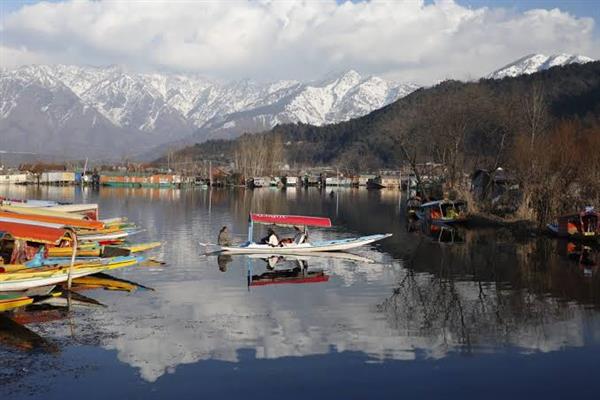It wasn’t all that long ago that Kashmiri separatists were seen as ‘untouchables’ for the security establishment. There seemed to be an unwritten rule somewhere in the holy grail of Jammu and Kashmir that the Hurriyat leaders are not to be disturbed. Although authorities have on and off confined them to their homes to prevent large gatherings, that was all.
With one sensational event after another denting their credibility in 2017, some prominent separatist faces are today languishing in Tihar Jail. While it would’ve created an uproar earlier, there isn’t a murmur of protest in Kashmir today. Why? If the situation in the Valley following Burhan Wani’s killing was not enough to raise tough questions on the Hurriyat leadership, the startling disclosure in India Today earlier this year by Syed Ali Shah Geelani’s aide, Nayeem Khan, who boasted about burning down hospitals in Kashmir — were they not meant for the sick — in order to prolong the anti-India protests after Wani’s killing, did the rest of the job.
“The disclosure (by Khan) confirmed the suspicions of many people (in Kashmir) that the separatist were not saints. It also lifted the veil from murky dealings that happen behind closed doors between a few, but impact the lives of thousands in the Valley. It was a game changer,” Professor Noor A Baba, political scientist at the Central University of Kashmir, told Kashmir Post. While the charm of Wani was fading and protests against his killing had died down by the middle of the year, Zakir Musa arrived on the scene. He described the political upheaval in the state as a fight for establishment of khilafat in the Asian subcontinent, which irked the Hurriyat leaders as well as his parent outfit Hizbul Mujahideen.
To avoid being painted with Islamic State and Al-Qaeda colors, the Hizb distanced itself from Musa’s utterances, sparking a war of words that culminated in a parting of ways by Musa from the outfit. The flamboyant militant commander also threatened to behead those separatists who call the turmoil in Kashmir a ‘political fight’.
“The verbal duel (between Musa, Hurriyat and the Hizb) created chatter among militants, especially locals, who had picked up arms recently believing it to be ‘the way of Allah’. Their agency was being denied to them now by those (separatists) who claimed to be fighting on their side. It also disillusioned the youngsters who had joined or wanted to join militancy,” a senior police officer said on the condition of anonymity.
The double whammy of Musa and Khan’s disclosure brought the NIA on the scene. First, Nayeem was arrested and put in Tihar Jail, followed by Geelani’s son-in-law Altaf Funtoosh and aide Ayaz Akbar, moderate Hurriyat chief Mirwaiz Umar Farooq’s advisor Shahid-ul-Islam, Shabir Shah, who was likened to Nelson Mandela at one point in time and others. Such sweeping arrests were unthinkable just three or so years ago.
“The Hurriyat would have never thought that things would come to such a pass, especially after Wani’s killing had generated an unprecedented wave of sympathy for their cause. It all has happened within a year. Today, they are isolated and irrelevant, but that does not mean their battle is lost or unjust,” said Baba.
The sympathy generated by Musa for challenging the Hurriyat and the change of narrative from a political to a pan-Islamic fight, exposed the fault-lines in the nearly three-decade-long insurgency in Kashmir. Outfits like the Islamic State and Al-Qaeda may not have a formidable standing in the state, but the influence of their radical ideology is always looming as a security threat to the state.
With people in Kashmir taking control of the streets, which was demonstrated by the events during last year’s uprising and continued protests and strikes observed this year without the trademark protest calendar of the Hurriyat, hartal politics is dying a slow and sure death. The separatists will have to innovate before the turmoil pushes them into oblivion. But with the NIA boxing them into a corner and people disillusioned with their style of politics — which has purportedly meant riches for the leaders and rags (and bullets) for the poor man’s son, it’s going to be a difficult, uncertain road ahead for the politics of separatism in Kashmir.





